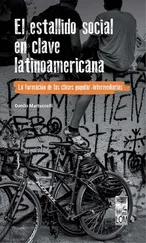Danilo Kiš - Psalm 44
Здесь есть возможность читать онлайн «Danilo Kiš - Psalm 44» весь текст электронной книги совершенно бесплатно (целиком полную версию без сокращений). В некоторых случаях можно слушать аудио, скачать через торрент в формате fb2 и присутствует краткое содержание. Год выпуска: 2012, Издательство: Dalkey Archive Press, Жанр: Современная проза, на английском языке. Описание произведения, (предисловие) а так же отзывы посетителей доступны на портале библиотеки ЛибКат.
- Название:Psalm 44
- Автор:
- Издательство:Dalkey Archive Press
- Жанр:
- Год:2012
- ISBN:нет данных
- Рейтинг книги:4 / 5. Голосов: 1
-
Избранное:Добавить в избранное
- Отзывы:
-
Ваша оценка:
- 80
- 1
- 2
- 3
- 4
- 5
Psalm 44: краткое содержание, описание и аннотация
Предлагаем к чтению аннотацию, описание, краткое содержание или предисловие (зависит от того, что написал сам автор книги «Psalm 44»). Если вы не нашли необходимую информацию о книге — напишите в комментариях, мы постараемся отыскать её.
Psalm 44 — читать онлайн бесплатно полную книгу (весь текст) целиком
Ниже представлен текст книги, разбитый по страницам. Система сохранения места последней прочитанной страницы, позволяет с удобством читать онлайн бесплатно книгу «Psalm 44», без необходимости каждый раз заново искать на чём Вы остановились. Поставьте закладку, и сможете в любой момент перейти на страницу, на которой закончили чтение.
Интервал:
Закладка:
“. . no one is asking you if you consider it reasonable or useful or whatever else you want to call it. You have simply been handed an order — a command —to conduct certain experiments on people, even though they might seem mad or absurd to you. It’s the same as when a noncommissioned officer is issued some order (and in our case it is in fact an instance of an order of a military nature) and he is not allowed to consider and does not need to understand why he and his squad have to defend the approaches to a certain bridge. He will perish defending those approaches, along with his entire squad, without considering the context or any potential personal doubts about the appropriateness of the mission or this tactical maneuver. — It’s the same in a doctor’s case when he’s been ordered to carry out (let us say) the complete sterilization of a certain group or even a race or to put into effect a program of euthanasia or of tests with vaccines or low temperatures: when that doctor refuses to execute the trials as ordered by the official institution in command it is assured that he will be called to account for this disobedience. In such a case — and here one must also consider the authoritarian character of our state — an individual’s adherence to the ethical code of a given profession has to yield to the total nature of this war ”; and from out of his meaty, round palm, squeezed into a jagged fist that was banging gingerly on the table, flew a stupid jack of spades in a green corporal’s tunic.
Jakob cast his experienced gambler’s eye over that card, over the Prussian figure in its tunic, with its two symmetrical bodies and two symmetrical swords as in a mirror and suddenly that mirror-doubled figure struck him as simultaneously dangerous and ludicrous; although she couldn’t see the expression on his face, or his legs under the table, or even hear his breathing or anything else by which she could gain an insight into Jakob’s condition, she was a priori convinced that he would not take any more risks now, if for no other reason than because of her, for he had to be thinking of her the entire time, Marija trembling in the cabinet, on the verge of unconsciousness, participating in this dangerous game not only as a kibitzer behind Jakob’s back but also as an unseen fellow player, a silent partner, a camouflaged prompter who wouldn’t permit him to get in over his head and who reined in the passion of the game in the name of weakness and in the name of a fear that Jakob must have sensed when he added unconvincingly (to her, anyway) and placatingly (to Dr. Nietzsche):
“I don’t know. It’s hard to understand all this, to make sense of everything,” and Marija remembered having asked Jakob to do something for Marija Beljanska, her namesake, who was at one time bunking in the same barracks as her: she had been summoned, along with a group of ten other women, and told to report to Dr. Nietzsche, and he had given them some injections that caused their legs to swell up; several times Marija underwent an operation in which she couldn’t see what they were doing with her leg, which hurt terribly and was wrapped up and put in a cast. Later they took off the bandages and plaster, and pus came trickling out of the wound. She was unable to stand on that leg. And then, immediately thereafter, they led her away to the gas chamber; but before that she had asked Jakob for help, right at the start: and she still remembered the look on his face and his voice:
Those are Dr. Nietzsche’s experiments.
What’s that supposed to mean, Jakob?
Someone should slip her some morphine. Or something like that. Do you see?
So that she’ll die?
Yes. So she’ll go to sleep ; then she understood everything and she recalled Marija’s mood when she had been summoned the first time: she believed that after the examination she would be packed off home. So she told Jakob once more:
Do that for her. Try to do it for her. I implore you, Jakob.
I’ll try , Jakob said. But it should have been done earlier. I worry that it’s already too late.
She knew, therefore, that Jakob wasn’t going to protest now but also wasn’t going to be lulled into complacency; and anyway it was high time for Dr. Nietzsche to start whatever he had come to Jakob for at that time of night, the real conversation he wanted to have, just between them, a confidential talk, as though between colleagues; that is, that thing on account of which he had right till this moment been hemming and hawing and mincing around Jakob with his little short sword, but in a conciliatory way, as if he were only playing, though Jakob had to feel the danger too, or else he wouldn’t have said, a little earlier, “If I were to forget that even for a minute. .” a comment he didn’t finish although it had to mean something, but Dr. Nietzsche would have to get to the point at last if for no other reason than because Jakob would challenge him eventually for he surely hadn’t forgotten that he’d locked Marija in the cabinet, and he knew that she couldn’t stand there like that forever but was going to collapse or cry out or give a loud moan; and then she thought that maybe it was a good thing that she too — even though it came at the cost of so great an effort and so many trials — was in attendance at this secret duel, this dangerous game in which one of the players has a jack of spades with two swords on his side and the other has only the imaginary shield of a poker face and his intellect and perhaps of time as well: if the Allied forces somewhere in Europe or in the Urals or the Pacific didn’t manage to remove several tens of thousands of jacks of clubs, clad in tunics and armed with their two swords, from the deck, and soon, thereby joining forces with time (the ace of hearts), Dr. Nietzsche would have his two SS men work Jakob over — in spades — as punishment for his disobedience and his passive resistance, and Marija would remain there in that cabinet bleeding out like a slaughtered lamb hung upside down on a hook. And for an instant she wondered how this game without rules would evolve if she weren’t there; she decided that even if she bled to death and so stopped eavesdropping and spying on the game, invisible but present, even then they would, nonetheless, still feel her mute presence (in the same way that she now felt the presence of Polja’s corpse in the barracks), her testimony or her accusation: Jakob would then, if only that one time, give a different response, even though it might only vary by a shade from the one he threw back at Dr. Nietzsche now, in front of her.
The chair scraped anew and she saw the unseen skull of Dr. Nietzsche and his graying locks á la Schopenhauer, as she had noted to herself the first time she saw him, as he looked angrily into Jakob’s invisible face:
“You are familiar with the situation on the front lines?” he said.
“One hears talk.”
“Unfortunately, it’s accurate,” Dr. Nietzsche said. “The Allies are advancing. You know that to be the case. No less so than I do.”
“It’s more that I have a premonition of it,” Jakob said.
“Yes, yes. You’re all. . You’re all Bergsonians, goddamn it.” He paused for a moment: “Intuition. . versus free will.”
“Ah,” Jakob continued. “ Also sprach Zarathustra .”
“Never mind that now,” Dr. Nietzsche said nervously. “Let’s get down to cases; this conversation has led us far afield.”
Then, at last, he said something which must have signified the beginning of that discussion for the sake of which he was now sitting there with Jakob — she was just as impatient as either of the men — so that things could finally get started and then what had to happen could finally happen and this game could be wrapped up and she could be rescued but it still seemed to her that time wasn’t moving, was at a standstill, just like this conversation being conducted by two voices, their speakers invisible, while she bled to the point of passing out with strained attentiveness in a position of both disfigured sacrifice and unseen witness; she was horribly dependent upon the words and the voices she could hear and on the facial expressions and hand gestures she couldn’t see while at the same time aware of her own role and her own movements, her own immobility that was every bit as significant and momentous as the two men’s words; aware to the point of pain and numbness both that every movement of her hand and even every beat of her pulse was governed by that diminutive cogwheel of events; and not only that: even every one of her thoughts connected with Jakob denoted something essential because it guided her and floated, invisibly present, now more than ever before, because of that sacrificial blood that was running out of her and depriving her of strength and dimming her consciousness — it was not just the pledge of her absolute union with Jakob but also the pledge and guarantee of her complicity in all of life’s temptations and accordingly also the pledge and guarantee of their joint conspiracy against death, and accordingly she had to hold out and not pass out, especially now, when it had already commenced, the thing to which she was so insanely bearing witness with her presence and her blood that was not merely the price of love and of love’s embrace but also (miraculously) evidence of the principle of life and of the thirst for life, for the presence or appearance of death always challenges love to pair off with it and mate so that finally one of them can take up the conqueror’s standard and wave it above the world; that breathless pairing of corpses and that love between Eros and Thanatos, born of antagonism, was no less than the clash of fundamental elements, of earth and blood, sometimes nearly incomprehensible as long as one is thinking of the basic nature of those substances and their original components: the vague, well-nigh organic sensation of all of this kept her mind alert; this encounter between love and death in her consciousness and in her blood: she could still hear Dr. Nietzsche’s words, uttered in a lowered voice, in what was almost a whisper: “ I have a concrete suggestion for you . . More or less a quid pro quo . Yes. A little favor in return.”
Читать дальшеИнтервал:
Закладка:
Похожие книги на «Psalm 44»
Представляем Вашему вниманию похожие книги на «Psalm 44» списком для выбора. Мы отобрали схожую по названию и смыслу литературу в надежде предоставить читателям больше вариантов отыскать новые, интересные, ещё непрочитанные произведения.
Обсуждение, отзывы о книге «Psalm 44» и просто собственные мнения читателей. Оставьте ваши комментарии, напишите, что Вы думаете о произведении, его смысле или главных героях. Укажите что конкретно понравилось, а что нет, и почему Вы так считаете.












